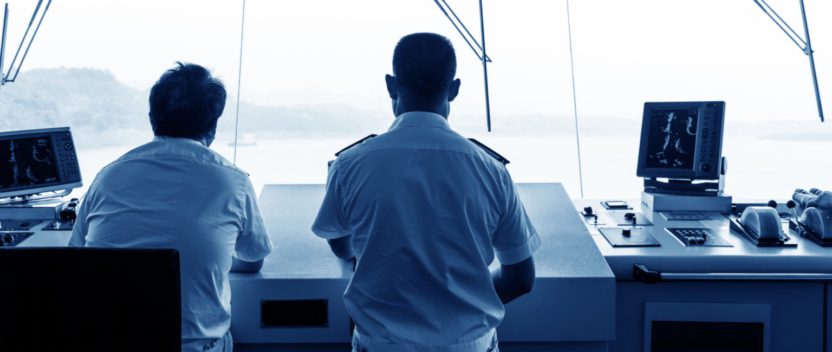People first at last
When a body as technical as the International Association of Classification Societies (IACS) says that people are probably more important to shipping’s future than technology alone, you know something has changed.
Even when discussing a strategy that includes developing a programme on ‘cyber safety’ – of critical systems beyond the IT department – IACS Chairman and ABS CEO Chris Wiernicki was at pains to stress the importance of the human factor.
The technical standards of IACS members are the rules by which ships are built and operated but Wiernicki says that ‘knowledge, not data’ is what will make a difference, whether in seafaring or surveying.
It’s typical of a sea change in the industry observable during London International Shipping Week (LISW), when one speaker after another competed to state that people are the key to making new technology work. Neglect the human factor and you have potentially unsafe, certainly less efficient ships.
The two elements have always gone hand in hand, but the debacle of recent regulatory mis-steps, together with the focus on big data and the need for optimisation has sharpened the focus.
To judge by the comments made during Shipping Week, seafarers hold the key to everything – even though in many cases they will not see the data that flows off the ship from batteries of sensors.
The important point – as we highlighted in our interview with Simon Pressly, Group Director, Crew Management for V.Ships – management philosophy and culture are equally big drivers of improvement as hours spent training.
The consensus is that the seafarers of the future will need to be better qualified, better educated and able to work in an environment that puts as much emphasis on technology and regulation as it does on ship handling.
Whether that increase in skills comes at the expense of the ‘unskilled’ segment of the workforce remains to be seen, but few disagree the technology trend is driving the industry towards not just a cleaner but a smarter future.
This is music to the ears of the people at Rolls-Royce Marine who have spent the last couple of years arguing that if the industry wants unmanned ships it should start thinking about it now. In fact, what it has spawned is a wider conversation about how people and technology interact.
None of the owners or operators on the panel at the Fathom Ship Efficiency event expressed any confidence in the potential of unmanned ships – and they spanned containers, tankers, general cargo and ferries. But they all agreed that the development and retention of their crew was a management priority.
Speaking at the LISW Conference, Ajit Shenoi, Director of the Southampton Marine and Maritime Institute said the shipping industry of the future will require “people to be trained at different levels of expertise and knowledge [than now], potentially making seafaring safer but also making the job requirement higher and the working conditions better. We are updating one type of job but not with an exact replica”.
LR’s Tom Boardley also poured some cold water on the idea that crew would be replaced by unskilled drone ship operators and suggested instead that there are marine roles unlikely ever to be replaced by technology.
“You can’t remotely command a ship if you don’t understand the sea. I still think people will go to sea and training to be an officer will still be a valuable profession. Lots of people then come ashore and develop their careers. The best capability is skills learned at sea and transferred ashore,” he said.
Boardley says he spends all the time he can encouraging cadets that the sea is the right choice for a long and interesting career. An awful lot of today’s fleet is going to look much same for quite a while, he said. “It takes a while for new technology to come in but amongst the crews on these complex ships we are going to need some very bright people.”
The biggest round of applause at that event was reserved for a well known shipmanager who observed that “It is people that make it work. Focusing on training people, supporting them in making equipment run safely and showing real leadership will give you far more safety than any piece of technology”.
But neither is it all about the man-machine interface either. At a symposium organised by the International Maritime Organization to mark World Maritime Day, Prof Mariko Kawano of Tokyo’s Waseda University suggested that the ‘new seafarer’ would be not just highly educated but also politically adept.
“Seafarers in future will need a better understanding of international legal rules so training of seafarers must be interdisciplinary,” she suggested. Obtaining such additional skills could also contribute to improving shipping’s visibility to the general public.
“Ensuring safety of navigation recognises the impact of new fleets and new technologies and it is the same for the conventions that govern shipping. It is related to the activity of seafarers, so they should be aware of it,” she added.
This itself suggests that – along with better connectivity – mariners of the future could be operating in a role that far more closely shadows working ashore. But that itself would be a case of catching up rather than forging ahead.
As Boardley pointed out “ships are utilitarian, they are there to carry goods” and there is no guarantee that more technology will solve every problem for the people who have to use it.
“If technology is applied in a way that improves the life of seafarers, as well as easier operation of the ship and better navigation, as opposed to more bureaucracy then it can be good,” he said. “If not, it will be like being given yet another gadget you can’t use”.
Ends


